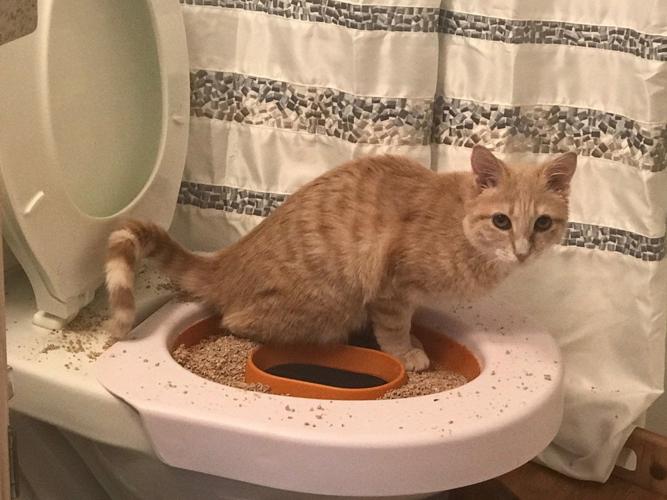Avoid Toilet Disasters: Don't Flush Cat Poop Down Your Toilet - Expert Advice
Avoid Toilet Disasters: Don't Flush Cat Poop Down Your Toilet - Expert Advice
Blog Article
How do you feel with regards to Don’t flush cat feces down the toilet?

Intro
As cat owners, it's important to be mindful of how we get rid of our feline pals' waste. While it might seem hassle-free to purge feline poop down the toilet, this technique can have harmful consequences for both the environment and human health and wellness.
Alternatives to Flushing
Luckily, there are more secure and a lot more accountable ways to get rid of cat poop. Take into consideration the adhering to choices:
1. Scoop and Dispose in Trash
One of the most typical approach of throwing away pet cat poop is to scoop it into an eco-friendly bag and toss it in the trash. Make sure to use a specialized clutter inside story and throw away the waste quickly.
2. Use Biodegradable Litter
Choose naturally degradable pet cat clutter made from products such as corn or wheat. These litters are environmentally friendly and can be safely dealt with in the garbage.
3. Hide in the Yard
If you have a backyard, take into consideration hiding feline waste in a marked location away from veggie yards and water resources. Make certain to dig deep sufficient to avoid contamination of groundwater.
4. Install a Pet Waste Disposal System
Purchase a pet garbage disposal system specifically designed for cat waste. These systems utilize enzymes to break down the waste, lowering odor and ecological impact.
Health and wellness Risks
Along with environmental concerns, flushing cat waste can also position wellness threats to humans. Cat feces may contain Toxoplasma gondii, a bloodsucker that can create toxoplasmosis-- a potentially extreme illness, especially for pregnant women and individuals with weakened body immune systems.
Ecological Impact
Purging cat poop presents harmful pathogens and bloodsuckers right into the water supply, positioning a substantial danger to marine ecosystems. These contaminants can negatively influence aquatic life and concession water high quality.
Verdict
Accountable pet ownership expands past supplying food and sanctuary-- it additionally includes appropriate waste management. By refraining from flushing cat poop down the toilet and selecting alternate disposal techniques, we can reduce our environmental impact and safeguard human wellness.
Why Can’t I Flush Cat Poop?
It Spreads a Parasite
Cats are frequently infected with a parasite called toxoplasma gondii. The parasite causes an infection called toxoplasmosis. It is usually harmless to cats. The parasite only uses cat poop as a host for its eggs. Otherwise, the cat’s immune system usually keeps the infection at low enough levels to maintain its own health. But it does not stop the develop of eggs. These eggs are tiny and surprisingly tough. They may survive for a year before they begin to grow. But that’s the problem.
Our wastewater system is not designed to deal with toxoplasmosis eggs. Instead, most eggs will flush from your toilet into sewers and wastewater management plants. After the sewage is treated for many other harmful things in it, it is typically released into local rivers, lakes, or oceans. Here, the toxoplasmosis eggs can find new hosts, including starfish, crabs, otters, and many other wildlife. For many, this is a significant risk to their health. Toxoplasmosis can also end up infecting water sources that are important for agriculture, which means our deer, pigs, and sheep can get infected too.
Is There Risk to Humans?
There can be a risk to human life from flushing cat poop down the toilet. If you do so, the parasites from your cat’s poop can end up in shellfish, game animals, or livestock. If this meat is then served raw or undercooked, the people who eat it can get sick.
In fact, according to the CDC, 40 million people in the United States are infected with toxoplasma gondii. They get it from exposure to infected seafood, or from some kind of cat poop contamination, like drinking from a stream that is contaminated or touching anything that has come into contact with cat poop. That includes just cleaning a cat litter box.
Most people who get infected with these parasites will not develop any symptoms. However, for pregnant women or for those with compromised immune systems, the parasite can cause severe health problems.
How to Handle Cat Poop
The best way to handle cat poop is actually to clean the box more often. The eggs that the parasite sheds will not become active until one to five days after the cat poops. That means that if you clean daily, you’re much less likely to come into direct contact with infectious eggs.
That said, always dispose of cat poop in the garbage and not down the toilet. Wash your hands before and after you clean the litter box, and bring the bag of poop right outside to your garbage bins.
https://trenchlesssolutionsusa.com/why-cant-i-flush-cat-poop/

As a fervent person who reads on How to Dispose of Cat Poop and Litter Without Plastic Bags, I think sharing that blog post was smart. Those who appreciated our blog posting kindly make sure you remember to pass it around. Thanks for taking the time to read it.
Request Your Service Report this page